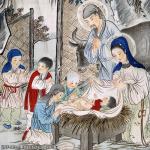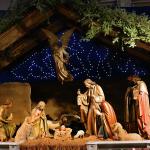Christmas Meditation 3
Truth Became Flesh
Saint Augustine on Truth at Christmas
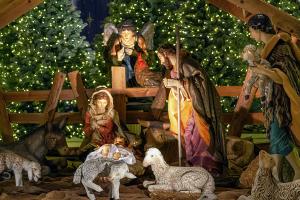
In the previous Christmas meditation we studied the word for word (logos) in the opening chapter of the Gospel of Recall how the Gospel of John opens. “In the beginning was the Word, and the Word was with God, and the Word was God. He was in the beginning with God” (John 1:1-2).
Then, look what happens in verse 14. “And the Word became flesh and lived among us, and we have seen his glory, the glory as of a father’s only son, full of grace and truth” (John 1:14). What is so astonishing here is that Word (Logos) and Truth (Alethia) become flesh.
In our previous Christmas meditation we tried to listen to the Word. Here, we turn to truth. And, we will turn once again to Saint Augustine. This time to Augustine’s Sermon 185 on Truth at Christmas.
Saint Augustine on Truth at Christmas
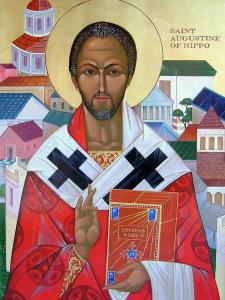
Augustine writes. “We celebrate this day which saw the fulfillment of the prophecy: ‘Truth is sprung out of the earth: and justice hath looked down from heaven.’[Ps.84:12] Truth, eternally existing in the bosom of the Father, has sprung from the earth so that He might exist also in the bosom of a mother. Truth, holding the world in place, has sprung from the earth so that He might be carried in the hands of a woman. Truth, incorruptibly nourishing the happiness of the angels, has sprung from the earth in order to be fed by human milk. Truth, whom the heavens cannot contain, has sprung from the earth so that He might be placed in a manger. For whose benefit did such unparalleled greatness come in such lowliness? Certainly for no personal advantage, but definitely for our great good, if only we believe. Arouse yourself, O humanity; for you God has become human. ‘Awake, sleeper, and arise from among the dead, and Christ will enlighten thee.’[Eph.5:14]”
The very truth that makes the angels happy is now gingerly carried in the hands of an earthly woman. Greatness has appeared in lowliness. Eternity has appeared in time. Life has appeared in death.
Pilate’s Question: What is Truth?
In an earlier Patheos post, we asked with Pontius Pilate, “What is truth?” in John 18:38. Elsewhere, in John 14:6, we find Jesus saying, “I am the way, and the truth, and the life.” What does “truth” mean here? And everywhere we use this word?
If truth is propositional, then the assertion—”Jesus Christ is the way, the truth, and the life”—could be either true or false. How could we measure the truth or falsity of this proposition? Answer: on the bases of what appears. On the basis of what has been revealed to be real.
In the Johannine passages cited above, note the Greek word for truth, alteheia. Philosopher Martin Heidegger (1889-1976) analyzed this term. He noted how alteheia means unveiling or uncovering or revealing, Entdeckung. Truth is an event in which something concealed becomes unconcealed, Unverborgenheit.
Curiously, the unconcealing of one truth sometimes requires the concealing of another truth. This leads to an ongoing dialectic of revealing and hiding. Pontius Pilate could look Truth in the face and not see it.
What’s Next?
Christmas 1: God Desired a Harlot with St. John Chrysostom
Christmas 2: The Word Became Flesh with St. Augustine
Christmas 3: Truth at Christmas with St. Augustine
Christmas 4: Mean Estate with Martin Luther
Conclusion: Truth at Christmas
Poet William Butler Yeats said, “Man can embody truth but he cannot know it.”[1] Might this help us interpret Christmas?
At Christmas Truth (aletheia) became flesh (sarx). How did we behold the truth? In propositions? No. In dogmas? No. In arguments? No.
Truth arrived in the form of a person. Truth arrived in the form of a vulnerable infant cradled by his earthly mother. In Jesus, Truth is both revealed and hidden at the same time.
▓
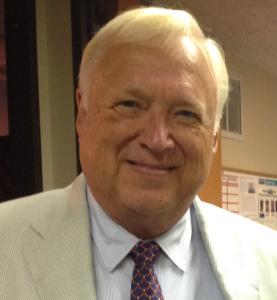
Ted Peters is a Lutheran pastor an emeritus professor at the Graduate Theological Union., He co-edits the journal, Theology and Science, with Robert John Russell on behalf of the Center for Theology and the Natural Sciences, in Berkeley, California, USA. His single volume systematic theology, God—The World’s Future, is now in the 3rd edition. He has also authored Sin: Radical Evil in Soul and Society as well as Sin Boldly: Justifying Faith for Fragile and Broken Souls. See his website: TedsTimelyTake.com.
Watch for Ted’s new 2023 book, The Voice of Public Theology, published by ATF Press.
▓
[1] “The church is above all the body of Christ–the embodiment of its truth–and it cannot be discerned through counting those who assent to certain dogmas. The life of the church has been its capacity to produce human beings who base their lives on the paradigm of the Gospels, the saints and martyrs, even modest an dhidden ones, who have constantly renewed it and are renewing it today.” Robert N. Bellah, Beyond Belief (New York: Harper, 1970) 221.


